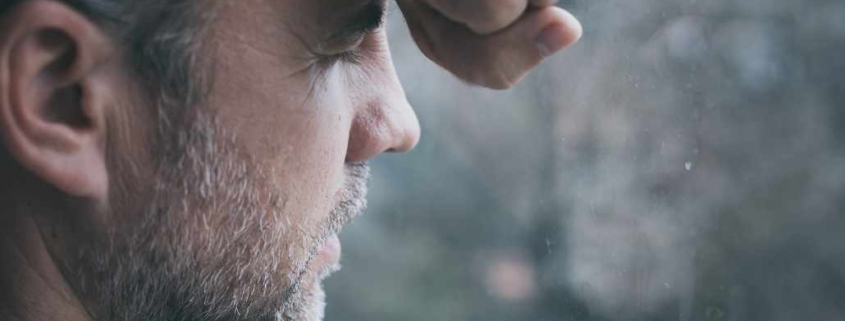What To Do If You Relapse on Drugs and/or Alcohol
Table of Contents
When it comes to succeeding in recovery from substance use, identifying the potential hazards in advance is key to protecting the new life you have worked so hard to shape. Relapse can and does happen no matter how committed someone may be to their sobriety. As badly as you may feel after experiencing the setback, a relapse on drugs does not have to spell the end of your recovery dreams. Learn what to do if you experience a relapse.
What is a Relapse?
A relapse is exactly what the word says – lapsing back to drug or alcohol use after a period of sobriety. Although the highest rates of relapse occur during the first year of recovery, relapses can happen at any point in your journey.
People often are under the assumption that relapse occurs in a moment, as an impulse that overpowers you in that moment. This is not correct. In fact, a relapse can take days to weeks to play out.
When it does there is a tendency to believe that you have failed, leading you to feel strong emotions like shame and guilt. But a relapse does not mean you have failed, only that you are human and are wrestling with the beast of addiction.
In reality, the habits that resulted in altered brain pathways are not easily overcome in a few short months. It takes time to establish new healthy habits in recovery. In that first year, recovery skills are in not practiced and haven’t become second nature yet.
What Causes a Relapse?
A relapse back to the former drug use is spurred by triggers. Although triggers are ever present, when someone begins falling into bad habits or neglecting their recovery actions they become susceptible.
Triggers to relapse involve stimuli that prompt the person to return to the substance. A trigger may be a person, event, situation, emotions, or a place that on some deep level inspires you to seek out the drug.
Out of all triggers, some are more probable to cause a relapse. These are alcohol or drug cravings, exposure to substances, or being around former substance user friends.
Are there Signs of Impending Relapse?
Even though it might seem that way, a relapse doesn’t just happen all of a sudden. In most cases, the relapse process evolves over time. There are 8 warning signs that will alert you that you are becoming vulnerable to a possible relapse. These include:
- You stop attending meetings. You may become overly confident and begin to skip N.A. meetings. If you notice you are making excuses for going to meetings or chatting with your sponsor, you could be in trouble.
- You neglect your obligations. When relapse risks begin to ramp up, you may begin to neglect work and family responsibilities.
- Your mood or attitude becomes negative. You may notice a sudden change in your demeanor or attitude. You might be more moody, irritable, or negative.
- You seek out drugs. You might begin the process of obtaining the drug, a clear sign you are at risk of relapse.
- You become defensive. Loved ones or a sponsor may check in with you if they sense something has changed. You may respond in a defensive manner.
- You abandoning new healthy routines. After forming new healthy habits in recovery, and then begin to neglect them, it is a sign of impending relapse.
- You avoid friends and family. You may begin to isolate or withdraw socially, preferring to spend your time alone.
- You return to your old crowd. After forming new sober friendships in recovery, you may start hanging out with drug users again.
How to Stop a Relapse
When you begin to recognize the signs that you are losing your grip on sobriety, you have a chance to take action. Be proactive to protect your recovery by following these tips:
- Revisit your relapse prevention plan. Update and refine your relapse prevention plan if you are not finding the current version to be helping much.
- Reduce stress. Stress is the number one cause of relapse. Consider any sources of stress in your life and take steps to reduce it.
- Add layers of protection. It might be helpful to stay in a sober living community or to hire a sober companion for a short time to assist you for a while.
- Take inventory. Check-in and do an honest inventory. Consider things you are doing that could be putting recovery in jeopardy.
- Take in some meetings. Make a point to attend daily meetings for at least a month or two. If you have lost touch with your sponsor, reach out.
- Re-establish healthy routines. You may find that you have returned to poor habits, such as not getting enough sleep or skipping workouts.
What to Do If You Relapse
After being clean for a while it can be discouraging to have a relapse back to drug use. However, as bad as you may feel in that moment, it can be a powerful motivator to recommit to abstinence.
It is common to feel a lot of shame after a relapse. Don’t wallow in it. Rather, dust yourself off and shift to a positive mindset. See yourself as someone in battle, and be determined to win that battle. The relapse was a setback, but you survived it and now you move forward.
It is typical, as your recovery journey unfolds, that there will likely be bumps in the road.. Instead, challenges faced in recovery should be seen as obstacles to overcome, not failures.
If you have relapsed, it’s time to consider your options. If it was a brief one-off incident, outpatient treatment should be helpful for setting you back on course. If it was a prolonged breach, you may benefit from a return to inpatient treatment.
Annandale Behavioral Health Leading Provider of Addiction Treatment Services
Annandale Behavioral Health offers a full spectrum of recovery services, including medical detox, residential treatment, and aftercare. Learn more about our program by calling us at (855) 778-8668.







